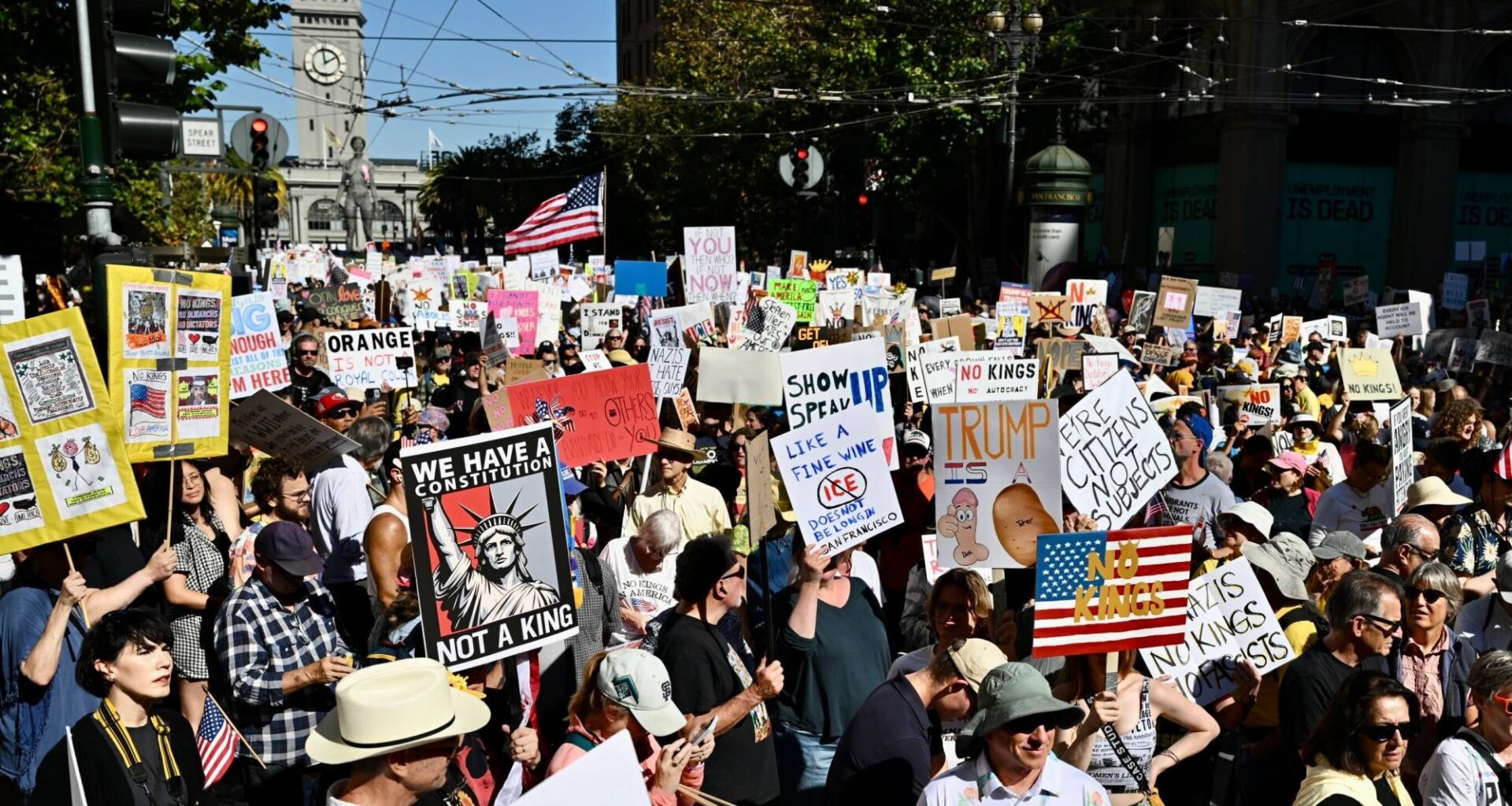Benioff walked back his comments in a post on X Friday, the day after his company’s annual Dreamforce conference wrapped up.
“My earlier comment came from an abundance of caution around the event, and I sincerely apologize for the concern it caused,” he wrote.
Before the protests in San Francisco, local officials stepped up security measures in anticipation of the large crowds.
In a press conference Friday, San Francisco city officials said they would be closely monitoring 911 call volume, EMS availability and police and fire resources.
“We will always, always protect the right to free speech and peaceful protests … But I also wanna be very clear,” said Lurie. “We will not tolerate any violent or destructive behavior, whether it’s directed at an attendee or one of our local businesses or one of our members of law enforcement. If you commit an act of violence, you will be arrested.”
Saturday’s demonstrations marked the second round of nationwide No Kings protests.
The first wave of rallies on June 14, initially organized to protest against a military parade thrown for Trump’s birthday, drew millions across the country, according to organizers.
During the June protests in the Bay Area, massive crowds filled city blocks in San Francisco, with people forming a giant “No King!” human banner on the city’s Ocean Beach. In Oakland, demonstrators inflated a large chicken balloon with Trump’s face on it. And in San José, protesters draped themselves in Mexican flags, and dressed up as battered and chained versions of Lady Liberty.
Michele Brynjulson, an organizer with Tri-Valley Indivisible, said she’s only seen interest grow since then, pointing to immigration enforcement in her East Bay community and concerns over what she called Trump’s authoritarian rhetoric.
“I think that people are hearing a lot of messages that can be called authoritarian and people are getting very worried about their own personal safety,” said Brynjulson.
Organizers estimate more than 300 rallies will take place across California on Saturday, with dozens in the Bay Area and over 2,600 across the country.
KQED’s Sarah Hotchkiss, Amanda Hernandez, Rachael Vasquez and Brian Krans contributed to this report.

